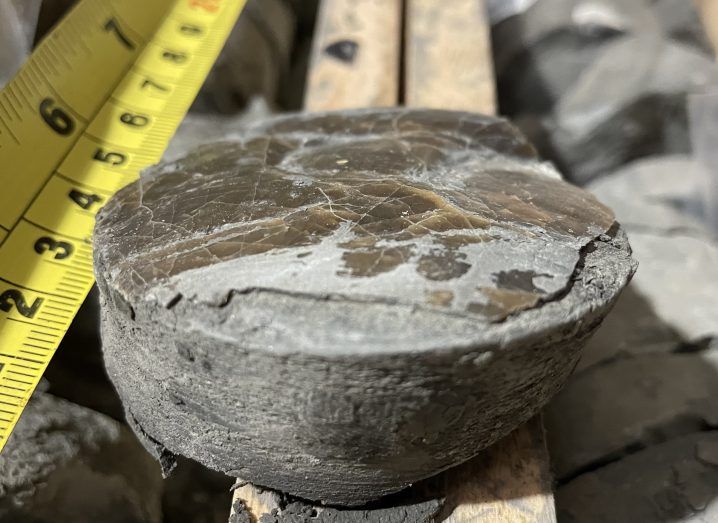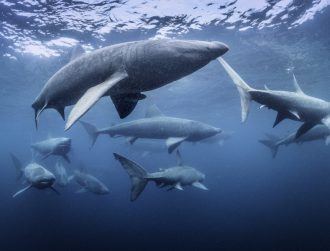
Sampling of the Carnduff cores, which were drilled in the Larne Basin, Northern Ireland. Image: Micha Ruhl / TCD
Researchers from Trinity are part of a study that found current levels of oceanic deoxygenation are similar to those that have caused mass extinctions in the past.
Scientists have discovered that the warming of oceans caused by the climate crisis is leading to the deoxygenation of water at levels similar to those that caused mass extinction of marine life in the past.
Oceanic deoxygenation, also known as anoxia, is a process in which warmer temperatures cause water to heat up, resulting in a decrease in its ability to hold oxygen and an increase in its buoyancy. This means that deeper waters, which naturally hold less oxygen, mix with surface waters, suffocating marine life.
In the past, this anoxia has caused some of the Earth’s worst mass marine extinctions, including one in the Triassic-Jurassic period about 200m years ago, according to research published in the journal Nature Geoscience today (27 November).
The study was led by scientists from Royal Holloway, a public research university in London, and saw participation from Trinity College Dublin (TCD) School of Natural Sciences and Utrecht University in the Netherlands.
Micha Ruhl, an assistant professor at TCD and a member of the international research team, said that scientists have long suspected that ocean deoxygenation plays an important role in the disturbance of marine ecosystems, which can lead to extinctions.
“The study of past time intervals of extreme environmental change indeed shows this to be the case, which teaches us important lessons about potential tipping points in local, as well as global ecosystems in response to climatic forcing,” Ruhl explained.
Using chemical data from ancient mudstone deposits obtained from drill-cores in Northern Ireland and Germany, the team was able to show that pulses in deoxygenation in shallow marine environments along the margins of the European continent at that time directly coincided with increased extinction levels in those places.
According to Ruhl, current findings show that even when the global extent of deoxygenation is similar to the present day, the local development of anoxic conditions and subsequent locally increased extinction rates can “cascade in widespread or global ecosystem collapse and extinctions”, even in areas where deoxygenation did not occur.
“It shows that global marine ecosystems become vulnerable, even when only local environments along the edges of the continents are disturbed,” Ruhl explained.
“Understanding such processes is of paramount importance for assessing present-day ecosystem stability and associated food supply, especially in a world where marine deoxygenation is projected to significantly increase in response to global warming and increased nutrient run-off from continents.”
10 things you need to know direct to your inbox every weekday. Sign up for the Daily Brief, Silicon Republic’s digest of essential sci-tech news.






